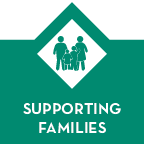Schools are an ideal place to connect students with mental and behavioral health supports. OSSE seeks to equip schools with the tools needed to ensure students and families have access to quality evidence-based supports and interventions.
Creating Safe and Supportive School Environments
OSSE supports schools in being places where student mental and behavioral health is addressed and staff have the tools to recognize the warning signs and risk factors of youth mental health crisis, including suicide, and to implement best practices for suicide prevention, intervention, and postvention.
- OSSE School Mental Health Guidelines *Updated March 2022
- Safe and Supportive Schools Resources
- School Mental Health Provider Resource Toolkit
- Multitiered System of Support (MTSS) for School Behavioral Health in the District
- Data-Driven Decision-Making for a Strong School Strengthening Work Plan
Comprehensive School Behavioral Health Program Resources
Department of Behavioral Health School Behavioral Health Program
DC’s Department of Behavioral Health (DBH) operates a school-based behavioral health program in DC public and public charter schools that offers prevention, early intervention, and clinical services to youth and their families.
OSSE aligns with and supports DBH’s program through building awareness and providing coordination and implementation support with our schools, community partners, and other key stakeholders. The DC Community of Practice is a resource hub for school personnel, behavioral health providers, and community to support the promotion of healthy development and well-being for all students and their families.
School Behavioral Health Posters
DC public and public charter schools have been provided printed 24-by-36-inch school behavioral health posters. The poster will communicate to youth and families which staff members are part of the school behavioral health team, how they can connect with the team, and the general types of services they provide. All schools will receive a poster in English and Spanish. Posters have been printed in Amharic, French, Chinese, and Vietnamese. These are available upon request by emailing [email protected].
Download copies of the school behavioral health poster (24-by-36-inch) here:
- School behavioral health poster in English
- School behavioral health poster in Spanish
- School behavioral health poster in Amharic
- School behavioral health poster in French
- School behavioral health poster in Chinese
- School behavioral health poster in Vietnamese
Download, fill in and post or distribute the school behavioral health flyer (8 ½-by-11-inch) available here:
- School behavioral health flyer in English
- School behavioral health flyer in Spanish
- School behavioral health flyer in Amharic
- School behavioral health flyer in French
- School behavioral health flyer in Chinese
- School behavioral health flyer in Vietnamese
Supporting Schools During a Crisis
When a crisis touches a school community, the aftermath may have ripple effects among the school, causing secondary traumatic stress, depression, insecurity, and pain amongst the student body, school staff and families. After a school experiences a crisis that involves a student, staff, student’s family or the greater community, the school must be prepared to field questions, connect students to counseling, and mental health services and reassure the community that the school offers a safe learning environment. If a school does not consider the immediate ramifications of a crisis, it may experience difficulty returning to a normal routine and a positive learning environment.
A school crisis might include but is not limited to: assault of a student or student’s family member, missing student, violence resulting in death, student accidental overdose, sexual harassment or assault of a student, and death or attempted death by suicide of a student or staff member. A school crisis may result in emotional and traumatic impact on the school community, even if the event happened off school grounds.
For more, visit our Responding to a School Crisis page.




